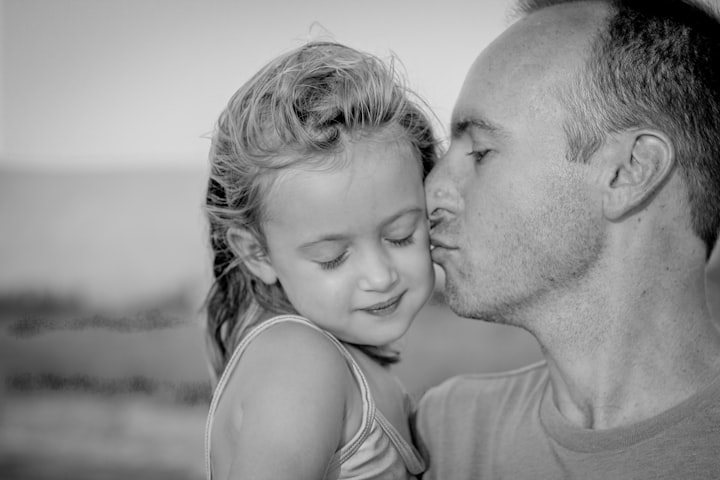The Long Goodbye
Everything fades. Everything crumbles. Everything dies.

The light bar on the police car parked in front of our house was still flashing, as I pulled up in my airport rental car wondering what on earth had happened now. Leaving my luggage and rushing inside, I found two police officers taking a statement from my disheveled mother. One gently took me aside to fill me in.
This is the home that I grew up in, belonging first to my grandparents and now to my mother. It would be mine one day too, if there were anything left of it, once my mother passed on. I loved this house and everything it represented about my childhood, so it saddened me to see it fade and crumble, much like my aging mother within it.
I was living and working far away from there now, so I spent all my holidays in my old hometown, trying to shore up the house and help my aging mom as best I could during my visits. I had enlisted the services of a semi-retired couple across the street to help us as much as possible. However, both my childhood home and my mother were in escalating decline, frustrating my best efforts to keep everything the same as it had always been.
It’s only 8:30 pm, but once the police leave I tromp upstairs, shove aside the class of ’84 decorative pillow and fall into the canopy bed I slept in when I was in high school. It’s comfortable. It’s familiar. The quilt is soft and warm and smells of home. I close my eyes, exhausted from my trip and the latest drama that reminds me of what I don’t want to acknowledge.
The police were called by my mother, who woke up from a nap to find the house a mess, her lip bleeding and one eye swollen. She was sure she’d been beaten and robbed. But the police investigation revealed that there was no violent entry into the house and nothing missing. They found my mother’s pills in disarray on the kitchen table. Their conclusion was that she had accidentally jumbled her powerful medications, sending her into a wild fugue. She alone wrecked the house and hurt herself. Not able to remember anything afterward, she called the police . . . on herself.
At 4 am I stumble down the hallway to the bathroom, instinctively sidestepping the creaky spot on the floorboards, though this time there is no one in the other bedrooms to awaken. Mom sleeps downstairs now on a rented hospital bed, unable to make it up the stairs to her old bedroom anymore.
As I flush, I hear a knocking in the pipes and wonder if this is a normal sound or a sign of something going wrong. In the early morning light, I see a stain on the wallpaper and wonder if there is a leak.
When she calls from downstairs, l take a deep breath and silently pray she has not fallen. I find her in the bathroom in a puddle that I first think is of her own creation, but then link to the groaning sound in the pipes that was, indeed, a problem. The 100-year-old cast iron pipe has chosen today to split, leaving a gaping crack down its length.
“That’s bad,” I say. “It will be expensive to repair.”
“I’ll just use the other bathroom,” she says, as she rolls away with her walker.
My mind jumps to a documentary I once saw called Grey Gardens. It recounted the tale of a mother-daughter team of recluses as their once elegant mansion falls into decay, while the inhabitants simply adjust in everyday oblivion.
It occurs to me that we are the working-class version of that story. When will we reach the tipping point? When the roof leaks? When the furnace stops? Any given Sunday, my mind answers.
I wonder how we got here. Crack by little crack, leak by little leak, my mind answers itself.
The handyman neighbor arrives and manages to temporarily fix the cracked pipe with silicone, gorilla tape and a prayer. A look passes between us. Both he and I realize what neither will say out loud . . . it’s only a matter of time.
Mom and I have already had “the conversation,” awkward like all our other conversations. But I try once again. “There are places you can go, you know, that are not like . . . nursing homes. They’re nice. They’re like apartments, but with support.”
“I know” she responds, “I am not ready yet.” And she walks away, once again, to shut down the exchange.
I understand. I’m not really ready yet either. Even though I haven’t lived there for years, it’s still home. Rooms that held our lives. Rooms that made us feel safe and comfortable. Rooms that are so much more than rooms.
So, for now, we’ll continue to shore things up as best we can for as long as we can, getting by day by day. With each new crisis, step by step we prepare ourselves for the inevitability neither wants to face. It feels like it won’t be long now. We solemnly, reluctantly, silently, whisper our long goodbyes as everything we know and love slowly slips through our fingers.
About the Creator
Donna L. Roberts, PhD (Psych Pstuff)
Writer, psychologist and university professor researching media psych, generational studies, human and animal rights, and industrial/organizational psychology






Comments
There are no comments for this story
Be the first to respond and start the conversation.